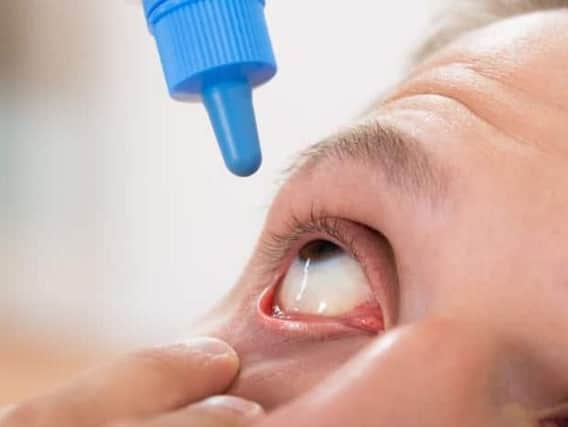'˜Cannabis' drop that treats glaucoma while you sleep developed


It is based on a chemical found in cannabis and could end the misery of twice daily drops that are often ineffective.
The condition is triggered by a build-up of pressure that damages cells in the optic nerve. It is the second biggest cause of blindness. The breakthrough could lead to better therapies for other serious eye disorders – including macular degeneration which also destroys sight.
Advertisement
Hide AdAdvertisement
Hide AdProfessor Vikramaditya Yadav, a biomedical engineer at British Columbia University in Canada, said: “Medicated eye drops are commonly used to treat glaucoma – but they’re often poorly absorbed.
“Less than 5 per cent of the drug stays in the eye because most of the drops just roll off the eye.
“Even when the drug is absorbed it may fail to reach the back of the eye where it can start repairing damaged neurons and relieving the pressure that characterises glaucoma.”
To solve these problems his team created a watery gel – or hydrogel. This was then filled with thousands of nanoparticles containing a chemical called CBGA (cannabigerolic acid). It is found in the marijuana plant and has already shown promise in relieving symptoms of glaucoma.
The disorder blights the lives of more than 56,00 people in Scotland. Many more may not know they have the condition.
Current eye drops taken daily or twice daily can lower internal eye pressure to help prevent damage to the optic nerve.
When the researchers applied their drops on donated pig corneas similar to human corneas – they were absorbed quickly and reached the back of the eye.
The team whose gel is described in the journal Drug Delivery & Translational Research is now working to scale up production and develop more anti-glaucoma cannabinoid molecules using genetically engineered microbes. Glaucoma is caused by the death of cells in the retina at the back of the eye.
Advertisement
Hide AdAdvertisement
Hide AdA spokesperson for sight loss charity RNIB Scotland said any new developments that improve on the treatment are welcome, but urged people to get a regular eye examination – free in Scotland.
He added: “Glaucoma damages the peripheral vision first and up to 40 per cent of your sight may be lost before you notice a difference.
“An eye test is the only way to detect glaucoma in its early stages so it’s vital that everyone does attend for an eye check-up at least every two years.”